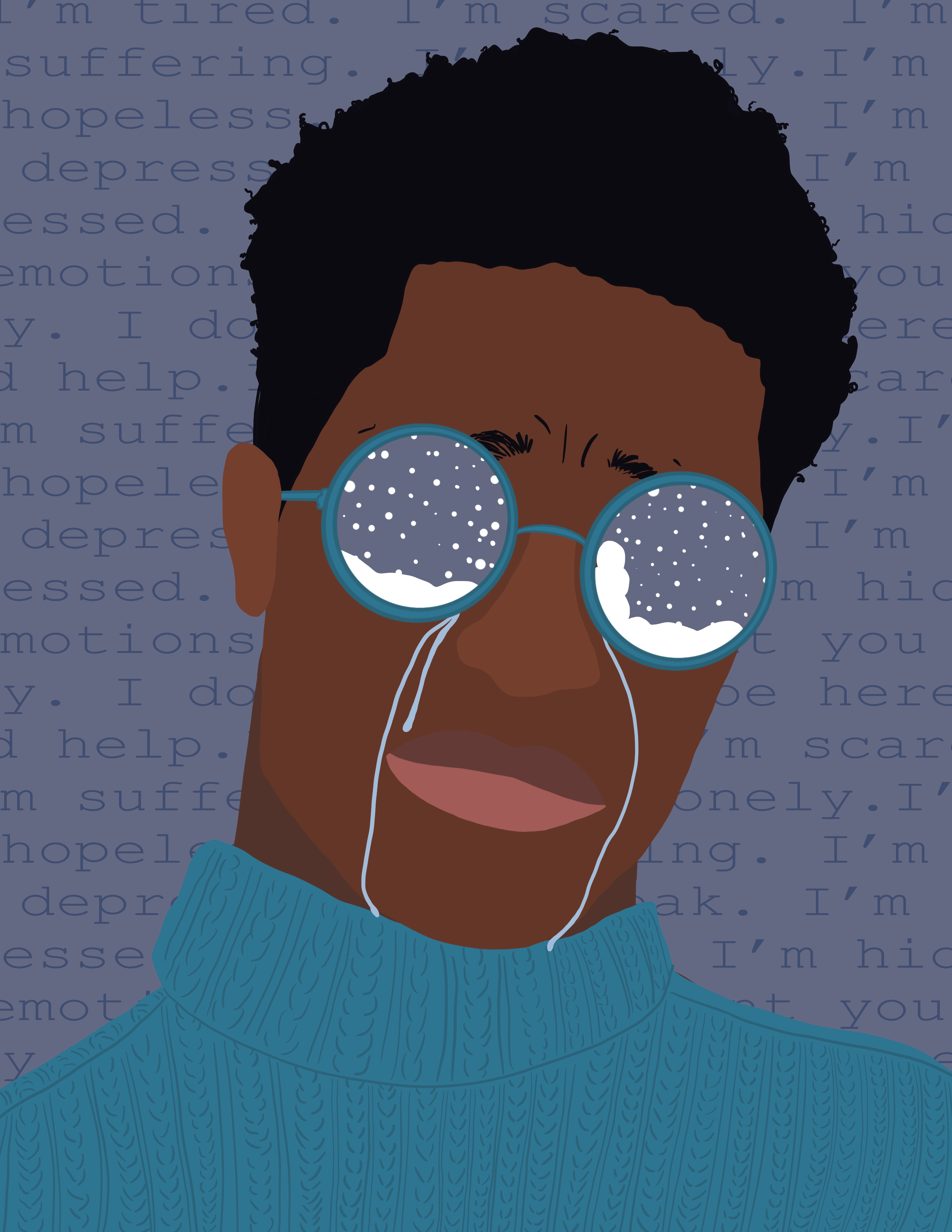By: Lizzy Boudah, Staff Writer
When the warm months of summer fade into fall, the colors aren’t the only things that start to change. When there’s less sunlight in the day your brain can change, too. For some people, when the cold weather starts to come in so does a different kind of depression. Some people who have a depression disorder can face terrible symptoms and side effects every day of the year, even with treatment. Now imagine those symptoms, but add a heavy depression that only seems to come out to play during a specific time of the year. It can happen from a specific day trigger, or weather change, or holiday stress (which only makes it worse when added to daily stress).
Seasonal affective disorder, or SAD, is a depressive order that comes with the upcoming winter. The lack of sunlight and longer nights can actually cause negative influences on the brain. According to Alyssa Abel from CollegiateParent, science has not provided a specific reason as to why SAD exists. However, some of the biological factors include circadian rhythms, melatonin, serotonin levels and vitamin deficiencies.
When the days are shorter, your body is signaled to be sleepy earlier because it gets dark earlier. This can lead to SAD, which ties into the melatonin produced by your body. With SAD, more melatonin is released which can make you lethargic and fatigued more often. It directly correlates to both depression and SAD. This makes it even harder for students to feel motivated enough to get out of bed and strive for the vitamin D their bodies need.
When it comes to seasonal affective disorder, it’s important to maintain a positive outlook and remind yourself that you have bodily priorities. With SAD and depression alike, it’s a good idea to be mindful of what the diagnosis does to you so you can work to combat it in a healthy manner. Keeping yourself physically active and healthy can promote healthy brain activity! Even if just going for a walk around campus, or going to the gym, doing yoga in your room, all of these things release endorphins needed to combat SAD.
SAD is more common in college students than some might realize. On top of the biological reasons for diagnosis, the end of the semester can be especially daunting for students. This added stress can cause more anxiety which can cause depressive symptoms, and it’s an endless loop. According to MD Norman Rosenthal, “…vulnerable students begin to experience fall-winter difficulties, their work piles up and they fall increasingly behind, thereby compounding the problem…Students often feel ashamed that they are not managing as well as they would like to…and delay reaching out for help, which only makes the problem harder to reverse when they finally do so.” This shows that while students may be embarrassed, there’s no reason to be. This mental disorder happens. No one should be shamed for needing help and no one should ever feel like there is no help at all. Reaching out when you feel you are slipping is one of the best ways to help yourself and/or educate other people. Talk to your professors, talk to your advisors, make appointments with the DSC or Health and Counseling. Use the resources you have available to you, and you will come out on top, shining bright.
Ways you can cope with SAD have physical and psychological benefits. Exercise in the daytime with a friend, absorb the vitamin D your body needs and fuel yourself with the adrenaline to get you through the day. Take a walk somewhere outside, take pictures of the scenery you see. Maybe it’s snow dusted trees, or some animals, something that you can capture and take with you on this journey to recovery and coping.
Another great way to cope is time management. Abel says “The beginning and end of semesters are often stressful for college students, but routine creates order and helps keep anxiety in check”. Getting into a routine can more or less train your body to get out of bed and conquer the day. Whether it’s a specific eating schedule (which may or may not help with metabolism!), or a set time to do school work in between classes, you are bound to find something that pertains to your everyday life that can keep you going.
When the snow starts to fall, don’t let yourself fall with it. Keep your head up, seek help if you feel you need it. Reach out to those around you, you never know who might be troubled by this diagnosis. Always remember you are not alone, and that the sun will shine every day as long as you look for it. Campus resources are listed as follows:
- Gorham Health and Counseling (Upton): 207-780-5411
- Portland Counseling: 207-780-4050
- Disability Services Center: 207-780-4706
- USM Libraries have “Happy Lights” to help with SAD
Sources:
https://www.collegiateparent.com/wellness/help-your-student-with-seasonal-depression/
https://www.normanrosenthal.com/blog/2016/11/college-students-seasonal-affective-disorder/

